 Your new post is loading...
 Your new post is loading...
Inspiring employees to remain engaged and productive is a growing issue....
Take your employee success strategy to the next level with the right employee engagement tools and learn the importance of an integrated solution.
Top 10 Human Resources Recruiter in Michigan...
Remote work makes performance management more challenging but also even more important.
A decade and billions of dollars later employee engagement levels have barely moved. Find out what companies may be missing in their quest to build a confident, engaged workforce that actually moves the needle on employee engagement.
With more employees working from home as a result of COVID-19, HR and managers must quickly pivot to remote performance management. Learn 10 tips HR teams can follow to help make the transition as seamless as possible.
Fixing Performance Management: Coaching - Mighty You founder, Gene Pease, shares his key insights into coaching and leadership....
Some helpful tips for HR professionals to establish performance goals for remote employee success in the "new normal" work from home.
Virtually looking over employees’ shoulders isn’t just bad for privacy. Research shows it could also be bad for business....
Companies should improve their performance management process to acknowledge employee performance and contributions.
How a Director of People and Culture encourages his team to have meaningful 1-on-1s to support career development and growth and retain top talent.
Across the world, employee engagement has flatlined. In many developed countries, productivity is stagnating
Work culture expert and author Jody Thompson offers advice on managing a remote workforce....
|
Satisfied employees stay longer and do better work. You can help motivate employees and provide deeper satisfaction by managing the things that really motivate people at work.
Let’s consider how integrating the right performance management technologies and culture can help organizations create a comprehensive employee experience.
Many experts recommend the use of employee self-appraisal questions and include them in the performance management process. Learn why they're important.
Develop a strong employee performance management strategy by adopting these best practices.
Employee engagement plays a vital role in the overall health and success of a business. With a changing workforce that is having to adapt to not only being remote during the COVID-19 pandemic and beyond, but pivoting priorities and dealing with more outside stressors, leaders may find that keeping their employees engaged is even more challenging than ever. It is one thing to strategize how to boost employee engagement in the office, but to accomplish this when employees are dispersed and dealing with a changed world may come with a whole new set of challenges. A Gallup study found companies with a highly engaged workforce are 21 percent more profitable. If driving employee engagement can have such a radical and positive impact on a business, why are 85 percent of workers disengaged? From a leadership perspective, this is terrifying. If employees aren’t engaged, how can a company move forward? In today’s dynamic work climate, businesses must establish measures of sustainability—for both accomplishing external goals and capitalizing on workforce and employee productivity. If employees are not motivated and engaged, the company is not going to achieve its full potential. In 2019, Gallup estimated in its State of American Workforce report that actively disengaged employees cost the United States $483 billion each year in lost productivity. Typically, poor communication, excessive workloads, and a lack of collaboration and employee recognition are the leading factors that spark disengagement at work. To better motivate, inspire, and involve the workforce, leadership must do a better job of connecting with employees on an individual and team level. They must show them they matter, as does the work they are doing. People need to understand their purpose. They want to know what they do directly impacts the business. The best way to accomplish this is to draw the connection between the work each individual, team, and manager is doing. One way of doing this is through strategic goals and measuring the objectives and key results (OKRs) of the organization. OKRs is a goal-setting framework for defining and tracking objectives and their outcomes. Measurement Matters for Employees Teams must set the right goals, so time is efficiently spent. It’s easy for diversions to take teams off course, but when that happens, main goals help redirect. Measuring the right goals increases outcomes, employee satisfaction, and team collaboration. It’s win-win for all involved —and essential in a fully remote team environment. We’ve seen an increase in success through goal-setting framework OKRs during this time. The reason? In practice, the OKR methodology enables high-level company objectives to be defined by leadership, then cascaded down to the rest of the organization. The workforce is given clarity and direction. From there, each employee, no matter their role, recognizes where they should focus their time and efforts, and better understands how to set and define the right goals that yield the highest impact. When a company operates with this level of openness and trust, employees have the creative freedom to set many of their own objectives and key results. There are many benefits to this approach, but one in particular comes from granting contributors the autonomy to define the best way to achieve their own goals. Additionally, it provides each employee the flexibility to decide how to accomplish the upcoming workload, while at the same time maintaining a focus on measurable outcomes. Such measurement gives people mini goals and larger metrics to meet, which fuels productivity and motivation. In this type of environment, employees become more engaged in the goal-setting process and buy into the initiatives they need to accomplish. This type of employee engagement is exactly what the company needs to increase motivation and productivity at every level. Measurement Matters for Managers Managers are responsible for efficiently moving pieces around, connecting with other teams and optimizing time spent on projects and deliverables. They can help motivate teams by showing exactly how their team’s role contributes to the overall success of the project—and company. This is where transparency comes into play. Transparency on progress and accountability boosts productivity. Together with clear metrics and OKRs, managers can increase team participation, attention, and collaboration. By taking this approach, leadership is supporting contributor ownership, reducing friction between departments, and creating a heightened level of clarity and individual empowerment. Confidence builds when everyone can see what everyone else is doing and becomes part of the goal-planning process. Employees can clearly understand the impact their work has on the short- and long-term objectives and how their unique position brings value to the success of the company. This modern approach to widespread transparency and alignment is the key to breaking down company walls and conventional silos that develop between teams. When a company achieves this, the organization is in a better position to create more robust collaboration between functions and individuals—fostering a sense of ownership and strong company community. This cultural shift from a traditional encapsulation of information creates a well-respected sense of accountability and self-worth down to the individual level. As teams now have spent months working with each other remotely, the same communication strategies that worked in the office don’t always apply. OKRs help teams stay aligned on goals and progress. Transparency is essential as teams must overcommunicate their workload and goals on an ongoing basis. In the months to come, the way everyone works will continue to evolve faster than in recent memory. While the future of work might seem unpredictable, the team progress bar should remain unwavering. Vetri Vellore is founder and CEO of Ally.io, a business-to-business Software-as-a-Service (SaaS) startup that enables teams to focus, align, and achieve goals with strong employee engagement. Before founding Ally.io in 2017, Vellore co-founded Chronus Corporation, where he now sits on the board. Prior to this, he served as a product unit manager at Microsoft for 14 years. Vellore graduated from the College of Engineering Guindy, Chennai with a B.E. in Computer Science and Engineering and from the University of Washington – Michael G. Foster School of Business with an MBA
A new survey issued by Topia, an HR tech company specializing in Global Talent Mobility and managing distributed workforces...
When one member of your team begins to perform below par, this can have a knock-on effect across the whole business. So, dealing effectively with performance issues is a must. Your team is the beating heart of your company.
Here are four ways organizations can maintain company values and culture with remote employees. ...
Creating an open and employee-friendly workplace is a priority for many organisations in today’s competitive jobs market.Companies have recognised that sa...
More than half of comms execs said employee engagement and collaboration have increased at their companies since the start of COVID-19. However, 40 percent of leaders said productivity declined while just 25 percent said it increased.
There's a difference between asking employees for feedback and listening to them. Learn how to apply active listening tips to employee engagement surveys.
Self-evaluations give employees a voice in their performance review. Learn the advantages they bring to your appraisals and how you can make employee self-reviews part of your organization's performance management process.
|

 Your new post is loading...
Your new post is loading...
 Your new post is loading...
Your new post is loading...








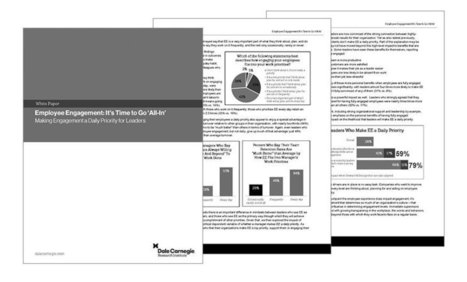

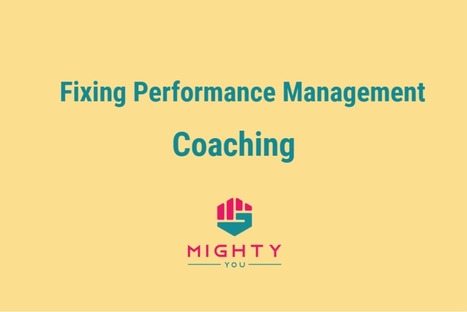



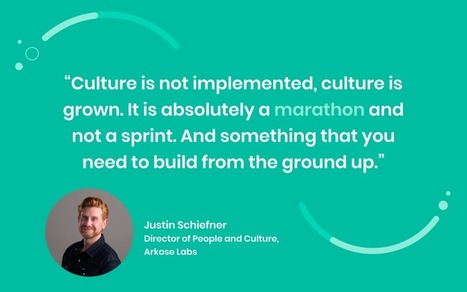


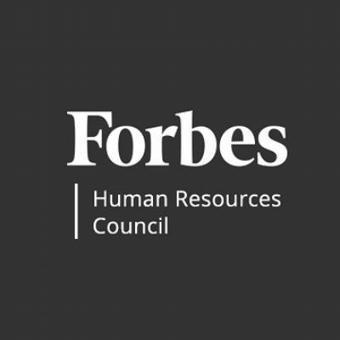



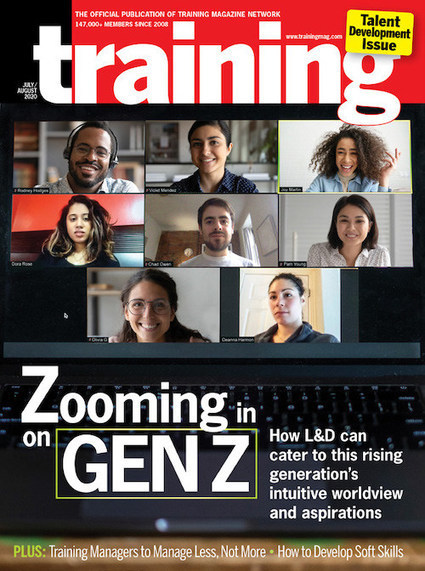


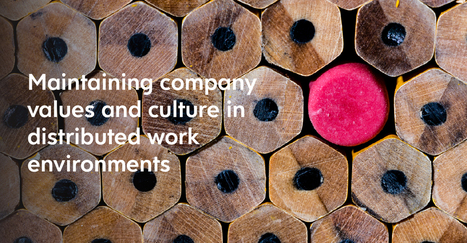









Almost all of my clients are struggling with giving effective feedback and conducting on-going performance management. This article emphasizes some of the key points to having a discussion around performance with your team members. I like the idea of showing empathy as a starting point.